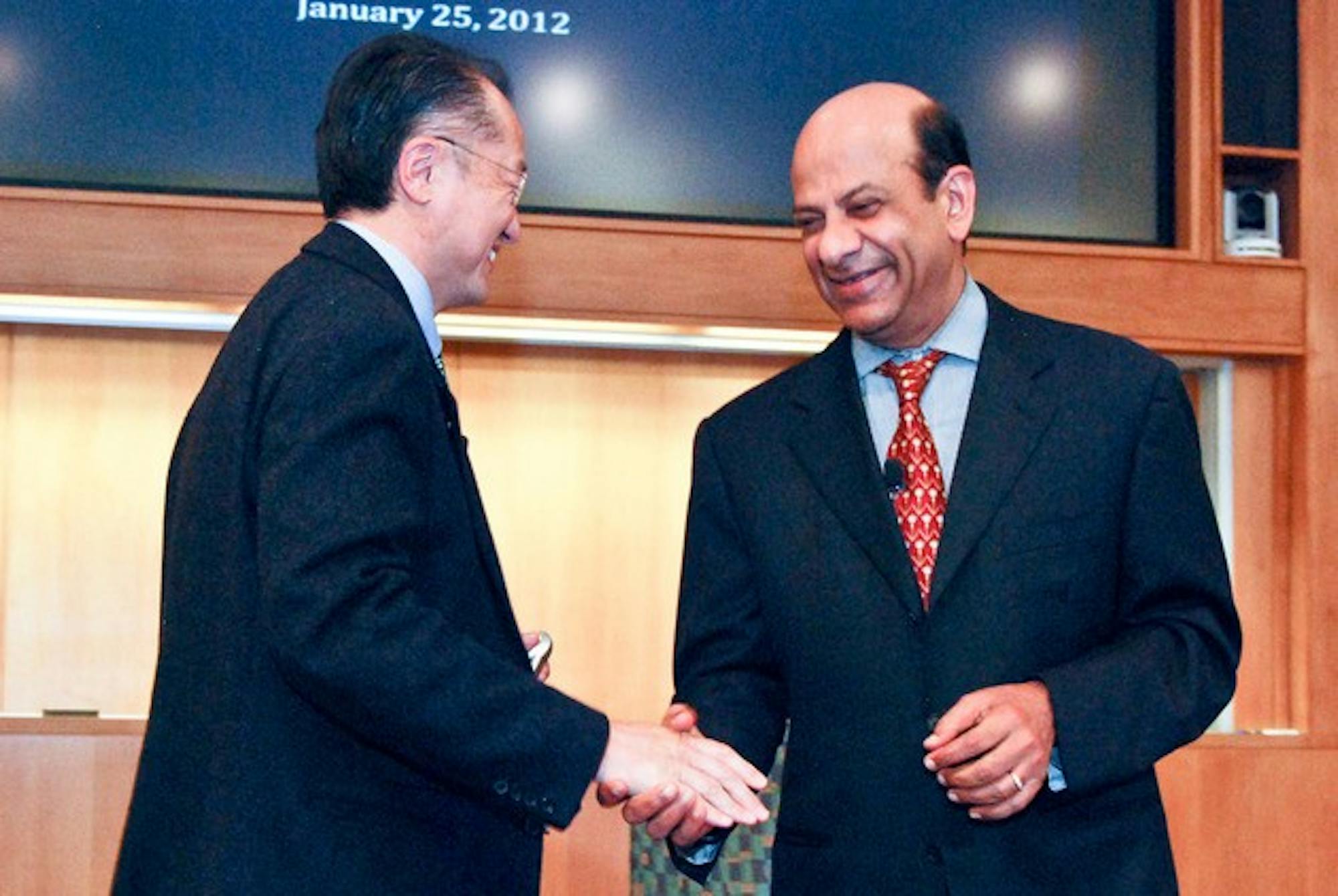During the four-day $300 House workshop, which will take place at the Tuck School of Business, participants will split into four teams to design a prototype. Two groups will focus on developing the structural prototypes one for a rural and one for an urban environment while the third group considers issues of infrastructure and community development, including water, waste management and job creation. The final group will create a business model and discuss issues of flexibility.
Following the close of the workshop, a prototype house will be built in Haiti, followed eventually by a model village, according to Govindarajan.
During Spring term 2011, two teams of students from Tuck began working with Govindarajan, studio art professor Jack Wilson and students in his architecture course to investigate the viability of the $300 House Project, focused specifically on solving housing issues in Haiti after the 2010 earthquake left many homeless.
Wilson, engineering professor Vicki May and global health program officer Molly Bode '09 took two trips to Haiti in the fall to evaluate the housing needs of the poor in both rural and urban settings. On the first trip in September, they were accompanied by MD-MBA students Avni Patel Tu '12 DMS '12 and Tom Finn Tu '12 DMS'12, as well as ecology student Tyler Pavlowich Adv '15. Students Nitin Sharma Tu '12 and Ryan Birjoo '11 Th '12 traveled with the team on the second trip in December to survey housing conditions.
"There's underlying issues in health that can be improved by adequate housing," Bode said. "Housing is one of the social determinates of health."
Until now, development of low-cost housing has been focused on disaster relief and has been viewed as a temporary solution to the problem, according to Wilson. Results from the team's in-country investigations, however, showed that communities want "well-built, durable houses that will last," he said.
Wilson said the team has tried to involve local communities as much as possible in order to "develop a process that can be taken over" by these communities after it is formulated.
The project has become popular among Tuck and Thayer students, according to individuals interviewed by The Dartmouth.
Funding has only been approved for one first-year group from Tuck to work on the project this year, according to Sharma. Three Thayer students Birjoo, Emily Kyker-Snowman '11 Th '12 and Michael Johnson '13 have also received funding to work on a human waste management project.
"They looked at all the different options and landed on a composting latrine," May said.
The students are currently developing a prototype, which is due to be completed by the end of this week.
Govindarajan prefaced the project's keynote address by drawing the audience's attention to the 75 million people who are homeless worldwide. Housing constitutes a basic human right, he said.
"Even insects have homes," he said.
Govindarajan said he decided on a figure of $300 partly in order to "galvanize" people into action. The specific number is less important than its symbolic value, he said.
"I know nothing about homes," Govindarajan said in an interview with The Dartmouth. "My naivete about housing could be my biggest advantage because I say, Why not?'"
Govindarajan described the "cycle of poverty" that he saw growing up in India, where he walked through a slum every day on his way to the bus stop. The question of how to break the cycle has interested him ever since, and he believes that the most basic factor is housing, he said.
"The key for us is that $300 House is not about low cost," he said. "We are not saying, Let's build a cheap house for the poor.'"
Instead, Govindarajan emphasized the importance of high-quality products and value.
"Poor people have such hard-earned money, they don't want to spend it on shoddy products," he said.
Govindarajan emphasized that "health is not delivered just in hospitals health is delivered at home." As a result, designing a house intelligently can improve health, education and job prospects, he said.
He said corporations will take the prospect of the $300 House very seriously if it is a legitimate business, which he believes it is.
For Govindarajan, the key is breakthrough innovation. When innovation is involved, the project is a question of commerce rather than charity, he said.
"The poor should not be viewed as a passive beneficiary," he said. "Converting the poor into consumers is a huge opportunity for corporations."
Govidarajan then offered the floor to Kim, whose extensive work in Haiti made him the choice speaker for the event, according to organizers.
"He's seen the complexity of factors which affect health," Bode said in an interview with The Dartmouth. "He's passionate about global health, has had experience in Haiti and really believes in the concept of reverse innovation."
Speaking about aid initiatives, Kim said it is no longer sufficient "just to want to do good in the world." Productivity and outcome should be prioritized, he said.
"The poor are asking you to use your connections to wealth and power to actually try to make their lives better," Kim said.
Achieving this level of improvement requires developing and maintaining high standards, he said.
In his address, Kim highlighted health issues and initiatives, drawing on his work with the World Health Organization on the "3 by 5" initiative, which aimed to increase the number of HIV/AIDS sufferers in Africa taking anti-retroviral drugs to three million by 2005.
Although the WHO did not achieve the goal until 2007, Kim said the case illustrates the importance of concrete deadlines.
He encouraged the participants of the $300 House Project to remain positive throughout their endeavor despite negative comments or claims of impossibility, reminding them that, in the words of President Barack Obama, "there's no such thing as false hope."
"You're going to hear a gazillion people making the most cynical comments about how they know it's not possible," he said.




